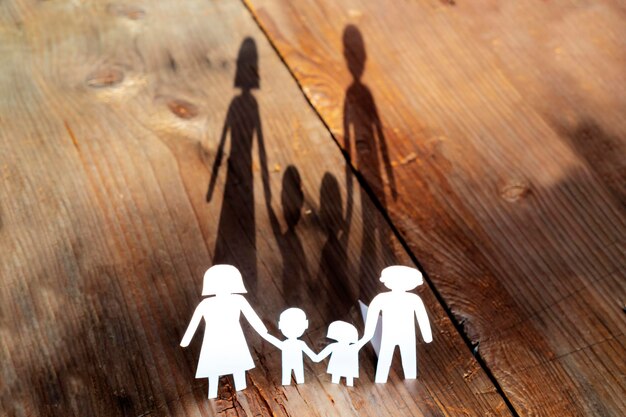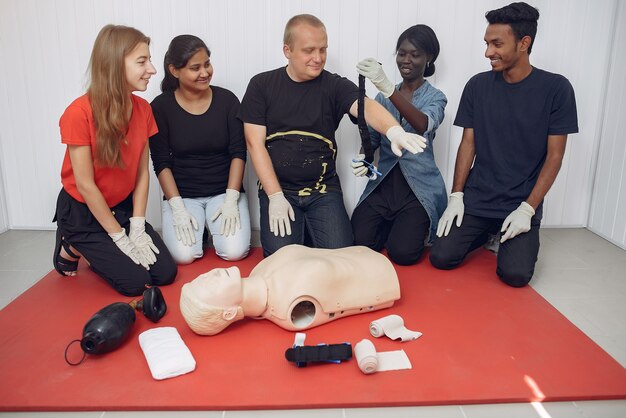In today’s uncertain world, where natural disasters, human-made crises, and unexpected emergencies seem to occur with increasing frequency, it has become crucial for families to prioritize preparedness. Ensuring the survival & well-being of your loved ones during times of crisis requires proactive planning & strategic actions. Through this blog post, you will explore the tactical steps that can help you ensure your family’s survival in crises.
By understanding the risks, creating a comprehensive emergency plan, stocking up on essentials, and acquiring essential survival skills, you can enhance your family’s resilience and increase their chances of thriving in the face of adversity. Let’s now dive into the tactical steps that will prepare you for any challenge that comes your way.

Understanding the Risks of a Crises
When we talk about preparedness, one of the most fundamental steps is understanding the risks associated with the crises. Whether it’s a natural disaster (like a hurricane) or an unseen human-made event, comprehending the potential dangers allows us to develop effective strategies and take proactive measures to protect ourselves and our loved ones.
Let’s read this blog further and explore how to identify potential crises & hazards, assess their impact & livelihood, research their nature, analyze vulnerabilities, and recognize the potential cascading effects. By acquiring a complete comprehension of the dangers, we can more readily set ourselves up for the difficulties that lie ahead.

Creating a Family Emergency Plan
When times of crisis come, having a well-thought family emergency plan can be the difference between chaos & calm, and confusion & clarity. A crucial tool for ensuring your loved ones’ safety and well-being in times of crisis is a family emergency plan. By finding an opportunity to foster an exhaustive arrangement, you can limit disarray and settle on informed choices in high-stress circumstances. Here are the key steps to creating a solid family emergency plan:
Establish a Communication Plan
- Identify emergency contacts and create a List.
- Determine a meeting point both inside & outside your neighborhood.
- Utilize technology, such as messaging apps, for communication purposes.
Designate Roles & Responsibilities
- Assign specific tasks to all family members as per their abilities & strengths.
- Ensure that everyone understands their roles in various scenarios, such as sheltering-in-place.
Develop Evacuation and Shelter-in-Place Strategies
- Identify primary & alternative evacuation routes from your home & neighborhood.
- Determine safe locations for sheltering in place during emergencies.
Gather Essential Emergency Supplies
- Make a survival pack with fundamental things like food, water, and meds.
- Include important documents, cash, and personal hygiene items in your kit.
By following these steps and regularly reviewing & practicing your plan, you can enhance your family’s preparedness. In addition, you can also increase their chances of staying safe during emergencies. Just remember that preparedness saves a life.

Stocking Up on Essentials
During times of crisis, having a well-stocked supply of essentials is crucial for your family’s survival & comfort. It ensures that you can sustain yourselves even when access to resources may be limited. Here are the key considerations when stocking up on essentials:
Food Supplies
- Store durable food things that require insignificant readiness and have a long time span of usability.
- Include canned goods, dried fruits, granola bars, and high-energy snacks.
Water Supplies
- Try to keep at least one gallon of water on hand for at least three days per person per day.
- Consider storing water purification systems, in case you need to obtain water from unconventional sources.
Medications & First Aid Supplies
- Keep an ample supply of prescription medications for all family members.
- Stock up on non-prescription drug for normal diseases, like pain killers and fever minimizers.
Basic Tools & Equipment
- Keep a set of essential tools, including a flashlight, batteries, and portable radio.
- Incorporate essential cleanliness things, for example, tissue, hand sanitizer, cleanser, and so on.
Remember to regularly check expiration dates and rotate your supplies to maintain freshness. Additionally, consider the specific needs of infants, elderly family members, and pets when stocking up on essentials. By being prepared with an ample supply of essentials, you can navigate crises more comfortably & confidently.

Learning Basic Survival Skills
In the midst of an emergency, having fundamental abilities to survive can have a huge effect in your capacity to explore testing circumstances and guarantee the security of your loved ones. Here are some essential survival skills that are worth acquiring:
First Aid & CPR Training
- Learn how to administer basic first aid, including wound care & treating injuries.
- Get certified in cardiopulmonary resuscitation (CPR) to assist patients in medical emergencies right away.
First Safety & Extinguisher Usage
- Understand fire safety principles, such as identifying escape routes and practicing fire drills.
- Learn how to use a fire extinguisher effectively & safely.
Navigation & Map Reading
- Familiarize yourself with map reading, compass usage, and basic navigation techniques.
- Learn how to orient yourself using landmarks and natural indicators.
Self-Defence & Personal Safety Techniques
- Learn the fundamentals of self-defense to safeguard yourself and your loved ones.
- Understand personal safety strategies, such as situational awareness & de-escalation techniques.
By investing time in learning these basic survival skills, you can enhance your ability to respond effectively during emergencies. Additionally, consider taking courses or workshops offered by local emergency services or community organizations to further expand your knowledge & capabilities. Remember, acquiring these skills can provide you with confidence & peace of mind in challenging situations.

Conclusion
This comprehensive blog post has provided us with essential information & practical steps to prepare your family for emergencies. It emphasizes the importance of understanding the risks associated with crises and offers guidance on creating a family emergency plan, stocking up on essentials, and learning basic survival skills.
By comprehending potential dangers, establishing communication protocols, designating roles & responsibilities, gathering emergency supplies, and acquiring essential survival skills, you can enhance your family’s resilience and increase their chances of thriving in the face of adversity.
Building community connections is also emphasized to foster mutual aid and collaboration during crises. Overall speaking, this blog post serves as a valuable resource to help prepare and navigate through challenging times with confidence.






